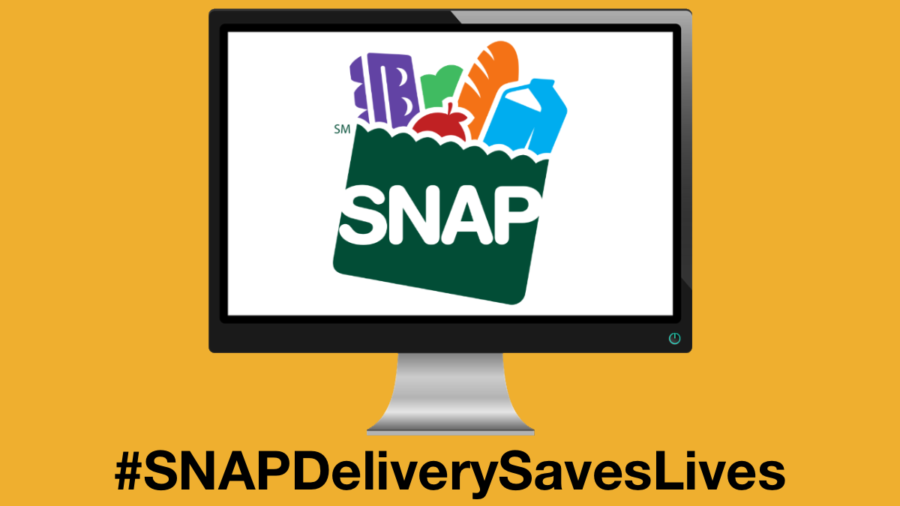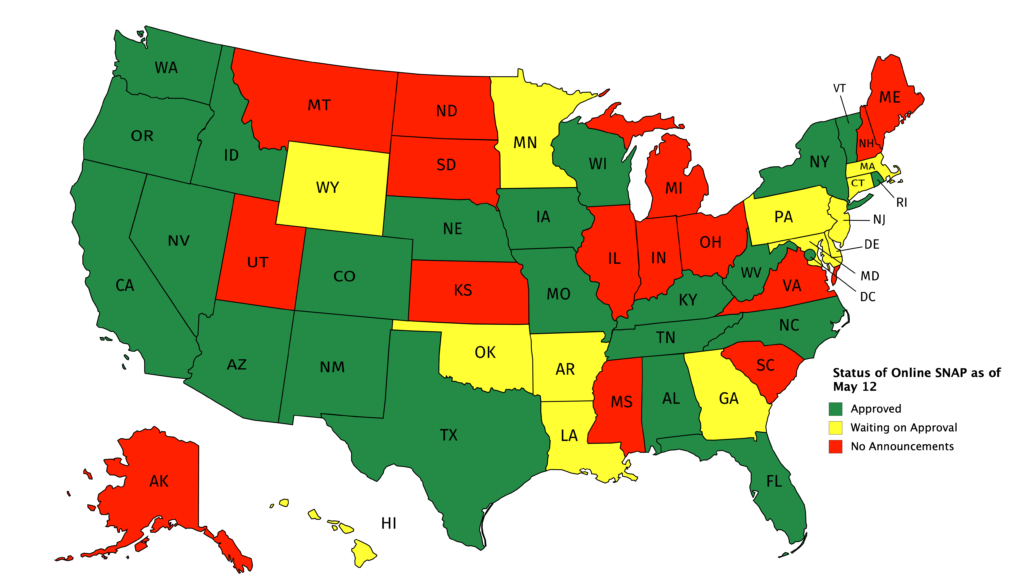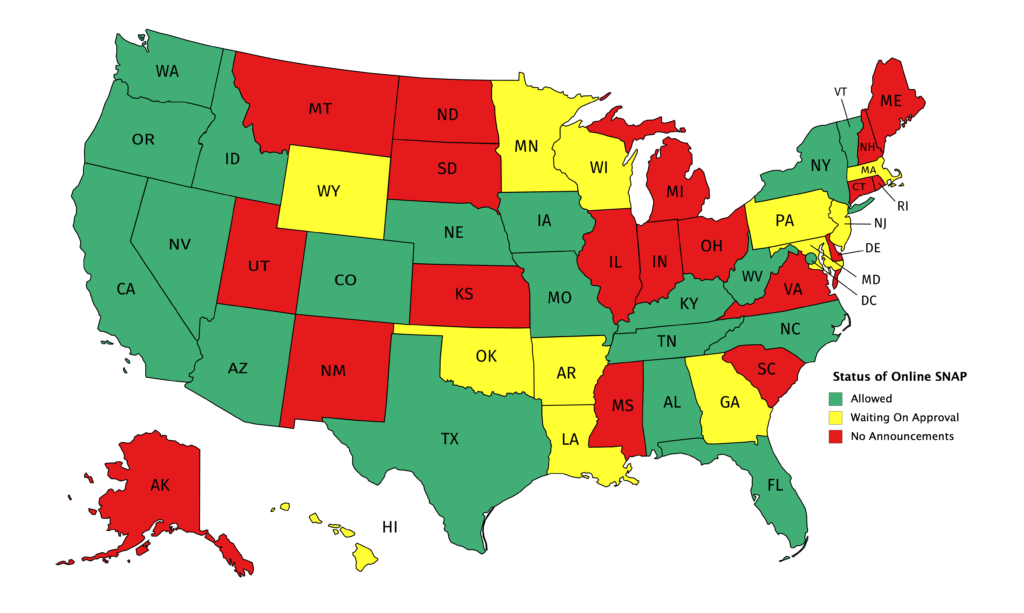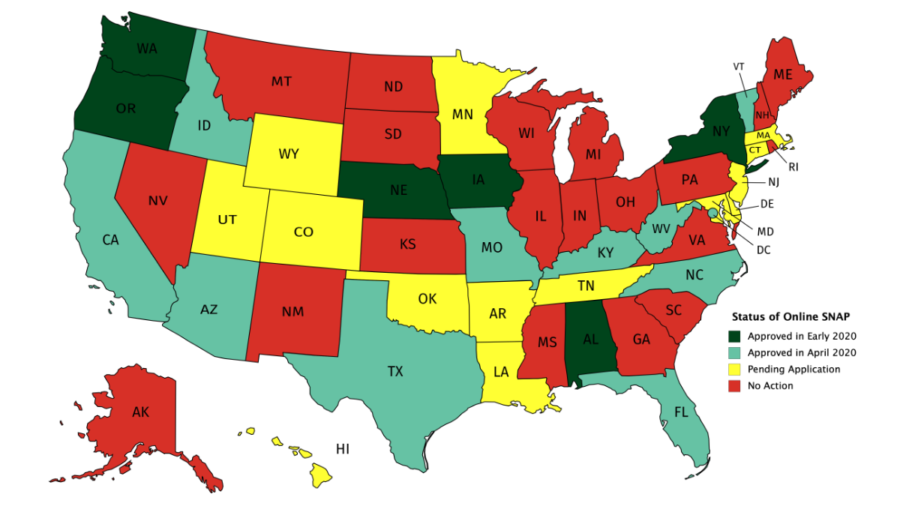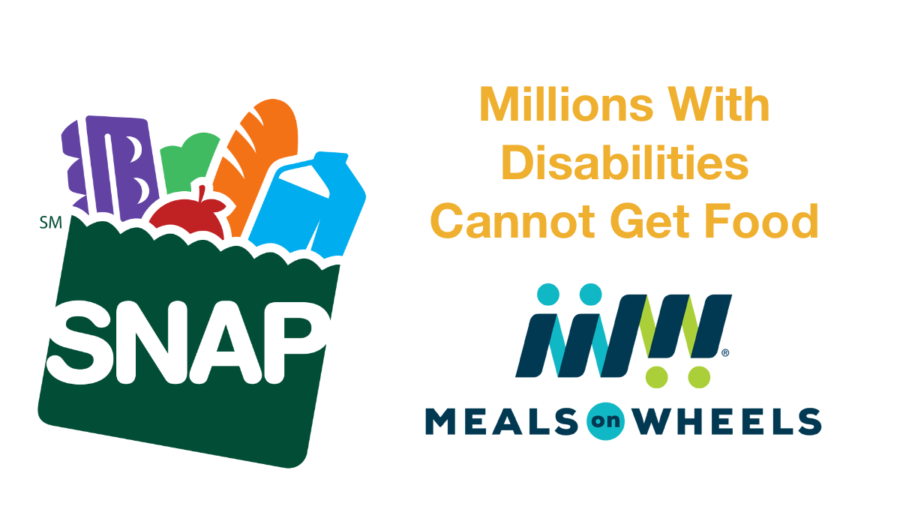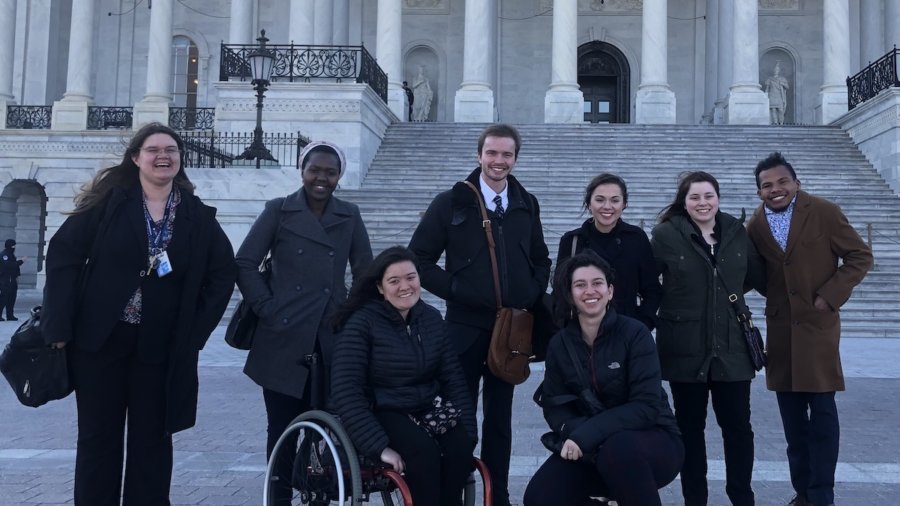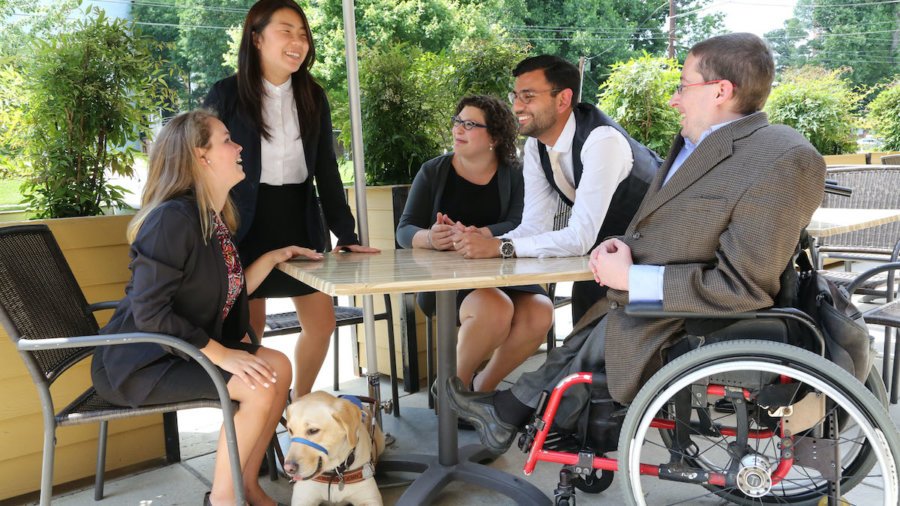New Poll Shows 81% Voters Support Allowing SNAP Users to Order Groceries Online for Delivery
Washington, D.C., May 12 – Fifteen states have yet to ensure their high-risk residents can receive online grocery deliveries through Supplemental Nutrition Assistance Program (SNAP), leading to millions of people with and without disabilities risking exposure to COVID-19 or going hungry.
Nationwide, 11 million Americans with disabilities depend on SNAP, also called food stamps, to pay for groceries and provide for their families.
Since the start of the pandemic, 35 states have a taken a critical step to ensure that the people at the greatest risk from COVID-19 can safely order groceries online. In these states, beneficiaries who depend on SNAP to put food on the table can now order their groceries online and get it delivered to their homes.
However, 15 states have yet to act: Alaska, Illinois, Indiana, Kansas, Maine, Michigan, Mississippi, Montana, New Hampshire, North Dakota, Ohio, South Carolina, South Dakota, Utah and Virginia.
Yet, according to a new poll conducted by Democracy Corps on behalf of the Center for Voter Information, 81 percent of voters say they favor allowing people who use SNAP to be able to order and pay for groceries and delivery online, so they don’t have to go into stores.


